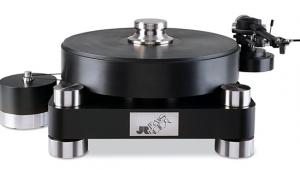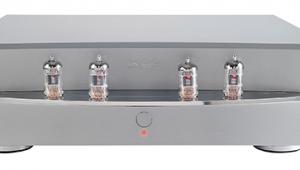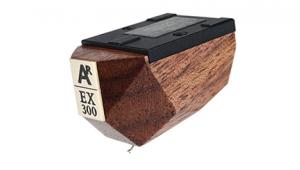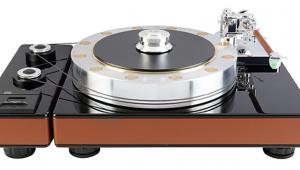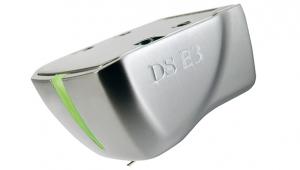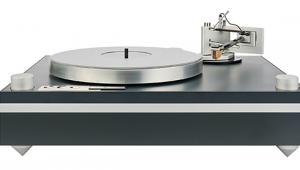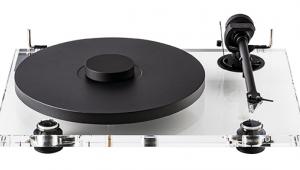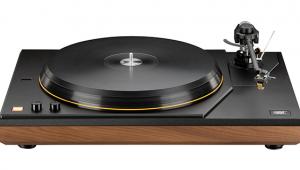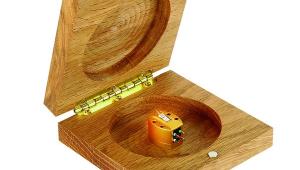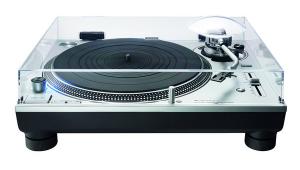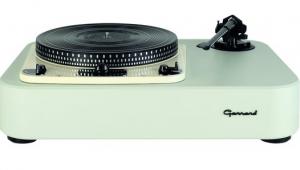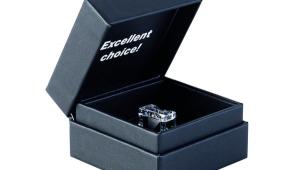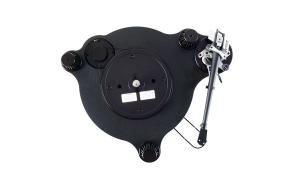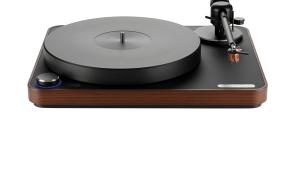Reed Muse 1C/3P Turntable

 Artisanship and innovation meet in this precision-engineered turntable/arm combo that brings 21st century know-how to bear on a pre-Millennium turntable technology
Artisanship and innovation meet in this precision-engineered turntable/arm combo that brings 21st century know-how to bear on a pre-Millennium turntable technology
Maybe you can teach an old dog new tricks. After decades of being dismissive of idler- or rim-drive turntables, if not downright hostile towards them, I have had my ears opened by Reed's Muse 1C. A previous owner of a Thorens TD 124 [HFN Jun '59] and a Garrard 401 [HFN Dec '65], I never considered them to be as rumble-free nor as quiet as direct-drive or belt-drive turntables. The Lithuanian-designed and built Muse 1C, at £9998 without arm, the least expensive model in a range of three, has changed all that.
Reed calls its reimagining of this technology 'friction-drive', and as it defines the belt-free review sample, it just may be about the most user-friendly turntable I have experienced in decades. Installation of the arm notwithstanding, this was a no-brainer to set up – I only looked at the manual to investigate one novel feature...
Science Friction
Driven by a hefty external PSU, the Muse 1C has only one connection to address and that's the socket around the back to accept the power source. This Reed deck, like so many others, will accommodate a variety of other arms but it's worth noting that the leads exit from the arm itself here and not via sockets at the rear. The accompanying power supply has a main on/off switch, while the deck is operated by five buttons on its top panel for power-on from standby, and the choice of 16, 33, 45 or 78rpm, the last of those with fine speed adjustment from 70-85rpm.
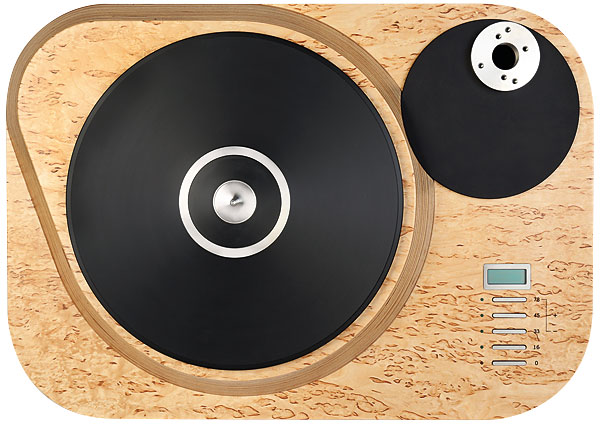
But back to the drive system. Reed told me that it believes the biggest advantage of a 'precisely made friction or rim-drive compared with belt- or direct-drive is rotating disc speed stability'. Moreover, the manufacturer states that wear-and-tear of its drive wheels will not affect speed stability.
Note that I wrote 'wheels' plural because Reed's Muse 1C is driven by two direct-current motors. To reduce possible mechanical vibration, Reed has fitted traction rollers of different diameters, 'spinning at different velocities and having mathematically non-multiple diameters to driving disc diameter'. Disc rotation (speed) is stabilised by a quartz-based phase-locked loop (PLL) system, and Reed specifies an average speed deviation of ±0.05%.
As if having studied the psychology of audiophiles, and reminding me of the late Tim de Paravicini producing his first EAR-Yoshino amplifiers in both valve and solid-state form with the same circuit, Reed has addressed belt-drive devotees despite preferring friction-drive. I was told that, 'For belt-drive fans, we left the possibility to convert the friction-driven to a belt-driven system in minutes by replacing the traction rollers, putting on a belt and setting a switch to the correct position'. How amazing is that?
Dream Screen
Easy the Muse 1C may be to install, but you might want to look at the manual to discover the ingenuity of the display. In addition to showing the speed – and this deck is fast when it comes to start-up – it also indicates if the deck is perfectly level thanks to an electronic inclinometer. The user can thus achieve faultless horizontal positioning without needing a spirit level as the LCD displays via pointers how to adjust either of the two front feet, leaving alone the one at the back.
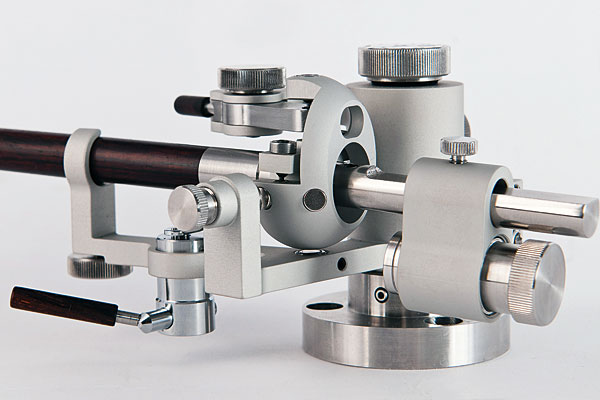
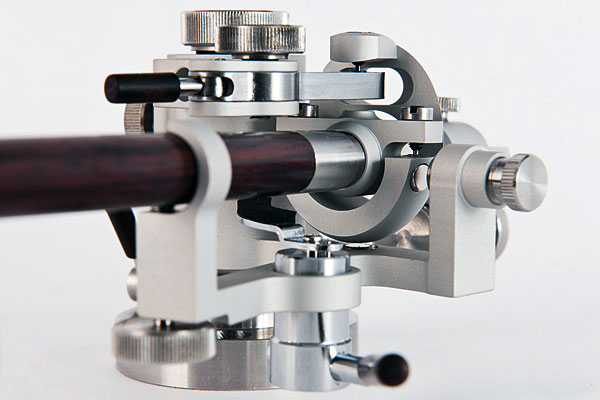
Let's discuss, however, the elephant in the room – or how this deck is drop-dead gorgeous. The chassis shown here is sculpted from Karelian birch ply, which coincidentally matched the side view of my DeVore O/93 loudspeakers [HFN Mar '23], while the basic model is finished in 'Moonlit Black'. It is substantial at 15kg and not tiny at 485mm wide but headache-free as there is no floaty suspension to futz around with once you've ensured that it's level. The composite platter is topped with a soft suede mat, and – though not supplied – I used it both with and without pucks.
Take Your Pick
Fitted to the deck was the 12in 3P arm which starts at £4298; it is the middle model of a range of five. I have never seen an arm with so many options, including five wooden arm wands and one in carbon fibre; five finishes; 9.5in, 10.5in or 12in arm lengths; eight cable types; DIN or phono plugs; three counterweights; two headshells; and a full complement of spares. Ours was fitted with the 12in option (£215), the Palladium Satin finish (£720) and Cocobolo wand (£170).
Diametrically opposed to the ergonomic brilliance of the deck, the tonearm portrays the designer as both a genius and a sadist. As operationally simple as is the turntable, the arm requires the hands of both a watchmaker and brain surgeon. I was reminded of cranky models of yore where once you balanced one area, another was knocked out of alignment.
Less complex than Reed's 5A tonearm reviewed previously on the Dohmann Helix Two Mk3 deck [HFN Jul '23], which is essentially a moving parallelogram, the 3P is a 'tri-pivot' – a unipivot horizontal bearing with two pivots for vertical movement, all with magnetic stabilisers. Ultimately, Reed describes it as a gimbal that acts like a unipivot, attributing to it the rigidity of a former with the low friction of the latter.
The vertical pivots are not captive per se, so you have to be careful not to pop them out of the cups. As with any item you encounter with outré behaviour, you soon develop familiarity, but I was berated by the distributor for not acting as if the 3P was as simple to use and as self-explanatory as a toothpick. It is not. Nonetheless, the hassle is worth every curse word I uttered because the performance on offer here is quite exceptional.

